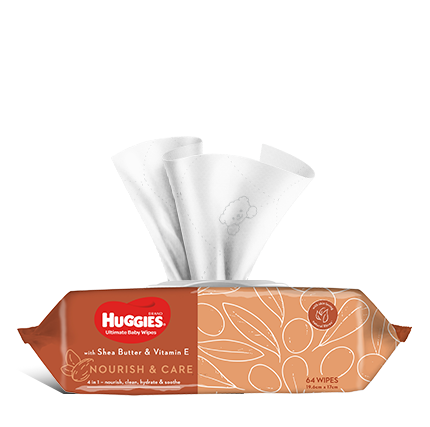Busy is the word to describe the average 14 month old toddler, which means you will be too. If you have older children they will be involved in entertaining your toddler and involving them in playing games and different activities. But don’t expect them to always play happy families. This age group is very ego-centric which means they believe the world and everyone in it is just there for their purpose. When you’re 14 months of age, there is really no need to think about how anyone else may be feeling. Sharing toys, waiting for their turn or being considerate are all social skills which will develop with time, but for now they are still a long way off.
Parenting your toddler will be different to how you parent your older children. You will still need to monitor them very closely and predict their needs. Their verbal skills will be very immature so most of their communication will be through body language, basic words and sounds as well as via their actions. Make a point of having a household which is steeped in conversation and language. Talk to your 14 month old as you go about your daily activities and involve them as much as you can in what you are doing. Although this may slow you up it will mean your toddler has the benefit of learning how actions link with speech and how tasks are achieved.
Growth and Development:
It is likely your toddler is up and walking by now, but don’t be too concerned if they still revert to crawling sometimes. You may want to get your toddler their first pair of shoes to protect their feet when they are outside. Look for shoes with a pliable and flexible sole and which support their feet comfortably. Soft slip-ons ones are ideal, especially if they have some grip on the soles. However, the ideal is to not use any footwear and to allow your toddler to have bare feet most of the time. This will help their balance and coordination as they learn what is involved in stepping and transferring their weight onto different parts of their feet and toes.
Your toddler may have a little pot belly at this age – a normal characteristic through these early years. Being longer in the body, having a protuberant tummy, a small bottom and bow legs is the characteristic appearance of this age group. Don’t worry if their proportions all seem to be wrong. As their bones lengthen and their body matures, their shape will change immensely. But it may be obvious, even at this early stage of how much they look like you or your partner.
If your toddler has little to no hair, then this is often the age when it starts to grow more. Fine, fair hair can take longer to appear than darker hues. Some toddlers have had their first hair cut at this age and this can be a strangely emotional time, especially for mothers. It can be one of the first signs their little baby is growing up. Remember to keep some of their baby hair and store it somewhere safe.
Play and Interaction:
This is a fun age where your toddler will seek to engage others whenever they can. They are likely to do something once and if it raises a laugh from others, then they’ll do it again and again. The concepts of patterns, repetition, cause/effect and expectation will all start at this early age. Even if you find their little games a little tedious at times, try to become involved in them and show some enthusiasm.
Read to your toddler every day and let them see you reading too. Take them to the library and search for books together. Second hand shops, fetes, garage sales and markets are all great sources for cheap children’s books. Aim to have a household where reading is a joy and a normal, everyday part of your lives. Children who grow up immersed in language and books are always well prepared for the early years of school.
What you can Expect This Month:
Perhaps some early defiant behaviour will emerge as your 14 month old learns what they can control and what they can’t. Try to stay calm and not see their protests as a deliberate attempt to sway your confidence. You will be learning, along with them about what is important and what isn’t. Try to match your actions with your words and aim for a simple life. Your toddler will thrive on routine and structure and grow strong in an environment where they know who will meet their primary needs.
Some days you will find parenting them is fairly straightforward and easy and other days will be more of a challenge. This is a time of discovery and inquisitiveness for your toddler; they will need to push familiar boundaries so they can learn about new things. This will inevitably lead to some interesting moments as they want to play with something or go somewhere you know they cannot. Try to remember that your job is not to always make your toddler happy, but to keep them safe. You also need to ensure they are provided with an environment which will supply them with everything they need to grow and thrive. There will be times when you need to remind yourself that although your toddler knows what they want, you know what they need.
Food and Nutrition:
The high-chair will become one of the most used pieces of furniture in your house from now on. Get into the habit of always strapping your toddler in – this is the age of climbing and toddlers can be very quick when they want to be. You may find it useful to have two high-chairs, especially if you eat outside as well as in. Make a point of placing it beside the table where everyone else eats. Turn the television off and talk with each other so that everyone is involved in meal time conversation. Meal times need to be about feeding the brain, as well as the body. Children who are distracted by televisions, DVDs and other electronic devices when they are eating do not have the opportunity to develop sound food related skills.
This is the age where independent eating is very important so if you are still spooning your toddler’s food into their mouth, consider stopping. Unless they have an issue with their development, they will be able to control what they eat and when they need to stop because they are full. Expect your 14 month old to want to eat from your plate as well as their own. This is completely normal behaviour at this age, when they are also learning about what food is safe and appropriate to eat. Try to offer them food from a wide variety of sources, even if they aren’t keen to begin with. Toddlers often need to try a new food 10-20 times before they will accept it. Fear of the unknown and being cautious of anything new is developmentally appropriate.
Keeping Your Toddler Healthy:
You may question why your toddler can be so picky with their food, but when it comes to dirt, anything goes, making this another one of the mysteries of childhood. Your 14 month old toddler is literally learning about the world through all of their senses, including their sense of taste. Try not to be too obsessive when it comes to insulating their environment. Their immune system is designed to cope with being exposed to thousands of microbes every day. But it is important to remember that fertilisers, pesticides, lead, animal excreta and other contaminants can linger in soil for many years and pose a risk to small children.
You may find your toddler has their first cold around now, which usually means a miserable time for them. Colds are common in the toddler/preschool years, simply because young children have not had the opportunity to build up any resistance to them. There is no treatment, other than symptomatic relief and lots of cuddles. If your toddler refuses to eat or drink, is not wetting their nappies, develops an elevated temperature, a cough or has trouble breathing you will need to have them assessed by a doctor.
Watch your toddler around the family dog now, even if they are familiar with each other. Dogs can be unpredictable and should never be left alone or unsupervised with young children. Don’t expect your 14 month old to know how to handle the family pets gently or treat them well. Learning how to hold, pet, stroke and care for animals are all skills which need a certain level of cognitive ability to manage. At this age your toddler is simply too young to know what is involved.
General Tips:
- Brush your toddler’s teeth at least twice a day. A small headed, soft toothbrush with plain water is ideal. Check our dental section and this AWCH fact sheet for excellent information on caring for your toddler’s teeth.
- Expect your 14 month old to drop down to one day time sleep this month. If they are still sleeping in the afternoons, this may impact on their night time settling routine. Plan for your toddler’s sleep time when you are organizing your day and prioritise this. Grumpy, tired toddlers are not fun to be around and when their body and brain are tired, there is only one solution.
- Expect lots of changes of clothes at this age as your toddler wants to get up close and personal with any pile of dirt. Have a good supply of “play clothes” which will stand up to the wear and tear of everyday use. Even if you have a personal hang up about your child using second hand clothes, this is the age when using them just makes perfect sense.
- Sun protection for this age group is a must. A broad brimmed hat, sunglasses and broad spectrum sun block for any outside play is essential. Restrict outside play to before 10am and after 3pm and try to stay in the shade. Make sure you protect your own skin too and role model sensible sun precautions.
- Try not to be seen as the “expert parent” by your partner and aim to share in the care giving role. Both boys and girls learn important nurturing skills when they are provided equally by their father and mother. If you are a sole parent, then aim to look for appropriately caring, suitable and safe role models for your son and daughter to learn from.
- Don’t think about moving your toddler into a bed just yet. Although they may look like they are getting a little big for their cot, they are still some months away from being old enough to transition into one. Cots have the advantage of containing an active toddler who is too young to understand what’s involved in staying on a bed.
Last Published* May, 2024
*Please note that the published date may not be the same as the date that the content was created and that information above may have changed since.




















